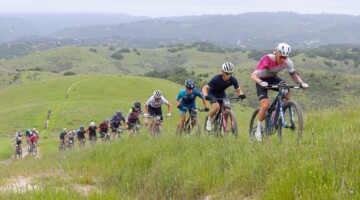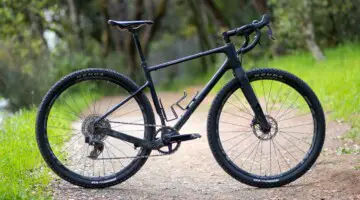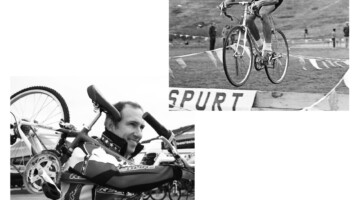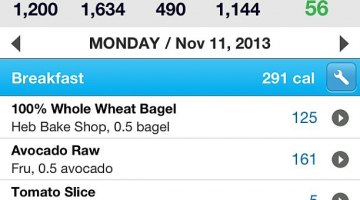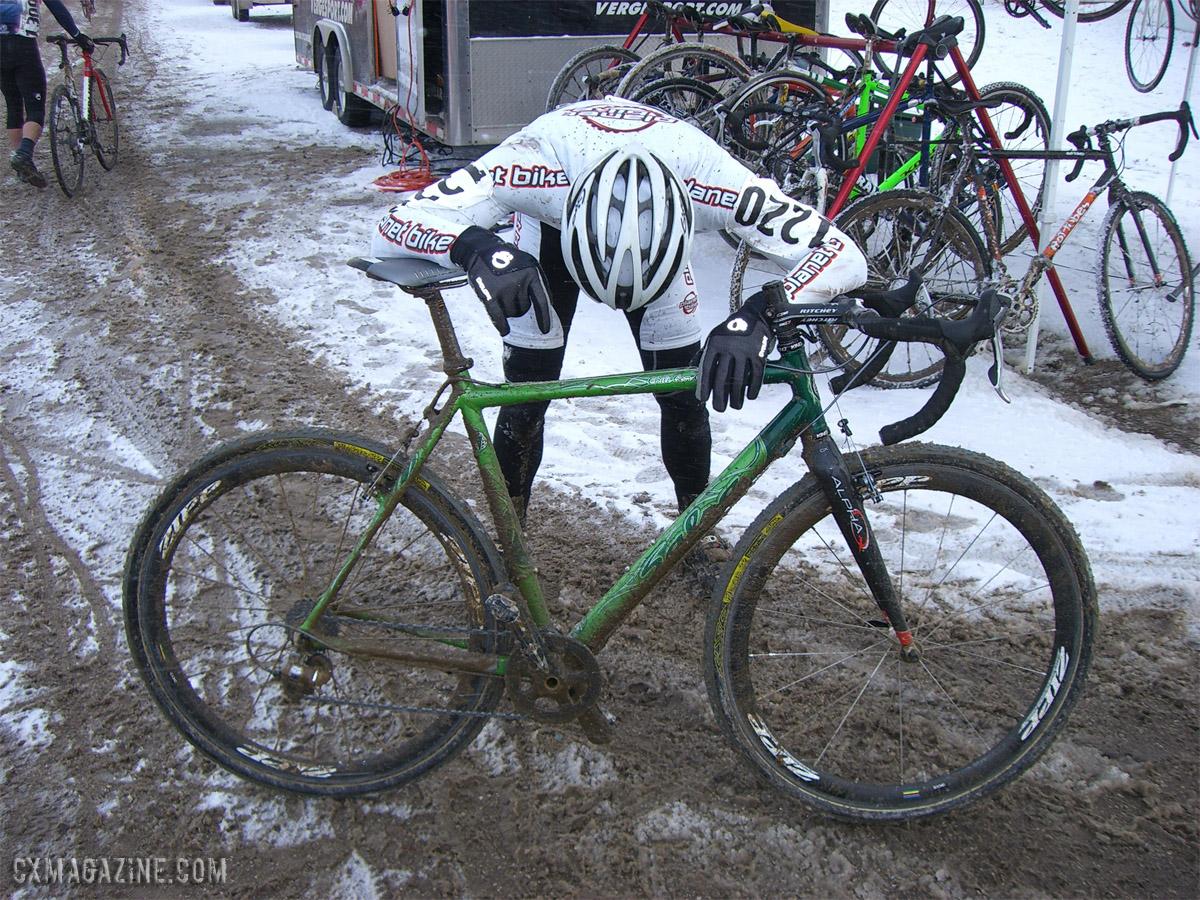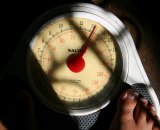
Nutrition and race weight are just as important to cyclocross as they are to any other kind of racing. ©puuikibeach
It’s the off-season for most, the beginning of road season for some, and for a good chunk (pun intended) of racers, now is the time they’re choosing to think about dropping that off-season weight gain before the real work of training for cyclocross starts. After all, when you race in a skinsuit two days of the week, you can’t hide much.
We sought out an expert in the field to give us some advice for the upcoming season. Matt Fitzgerald is – if you’re a triathlete – a household name. He’s the author of books like Racing Weight: How to Get Lean for Peak Performance and Racing Weight Quick Start Guide, along with 13 other books covering topics in running and triathlon. Fitzgerald also writes for Competitor, Triathlete, Inside Triathlon and Competitor.com. We’ve also talked to him before about good nutrition for cyclocross on cxmagazine.com.
We’re a nutritional enigma, trying to eat healthy while surrounded by waffle carts and chocolate-covered bacon, and trying to stay svelte for a long season that often isn’t a racer’s primary focus is a challenge in and of itself. It gets even harder when racers’ schedules demand a lot of recovery and travel time, and little time for long hours on the bike. Luckily, Fitzgerald has some tips for us about how to get to that racing weight before the season starts.
Cyclocross Magazine: How much weight should riders reasonably gain in the off season?
Matt Fitzgerald: In my Racing Weight book I talk about the eight percent rule, which is the idea that at no time should you ever weigh more than eight percent more than your ideal racing weight. Now, that’s sort of an average: I surveyed various sports nutritionists and athletes and coaches and came up with that. There are some who think, ‘Oh, you shouldn’t gain any weight,’ but that’s sort of a general rule of thumb that I think serves the purpose of giving people permission to gain a little weight because I think it is unavoidable if you’re not at peak levels of training. You have to expect to gain some weight, but it gives you a way to quantify your limits so you don’t completely let yourself go and it’s also important to keep in mind that that’s eight percent more than your ideal racing weight, not eight percent more than whatever you happen to weigh when your off-season begins.
CXM: Knowing that the cyclocross season goes from September through January, when should a rider start losing off-season weight?
MF: I think it makes sense to set aside a short weight loss phase right before you return to serious formal training, whatever that is for you. What’s difficult is when you’re actively pursuing peak fitness, that’s actually not the best time to pursue maximum weight loss. You generally will naturally lose some weight as your training goes up, but there are sort of competing objectives because when you’re training very heavily, you’re putting a lot of stress on your body and using a lot of energy and your top priority has to be supplying your body with the energy that it needs to do that training. So that’s sort of necessarily limits your capacity to lose weight, whereas when you don’t have that pressure of, ‘Oh, I’ve got to be in peak shape in eight weeks or 12 weeks or whatever,’ and it’s more of a relaxed time, you can actually cut back more on your caloric intake without worrying about sabotaging your training. There’s a time to prioritize weight loss and a time to prioritize fitness and the two really cannot be co-maximum priorities at the same time. So the ideal time to try to lose weight, as I said, is right before, set aside eight weeks before Day One of Serious Training.
CXM: So it’s sort of like it’s own block in periodization.
MF: That’s how I look at it, yeah.
CXM: How can a rider tell if he or she needs to lose weight?
MF: I really wish there was a super reliable scientific formula where you could plug in gender, age, weight, couple other variables and it would give you a guaranteed correct output, but that doesn’t exist, there are too many factors involved. The next best thing is a tool I employed in my Racing Weight book. Even though there is a certain genetic variation in terms of how lean people are able to get, there are certain well-documented brackets. So if you eat right and train right, based on your gender and age, you should be able to get down to a body fat percentage between ‘here and here.’ But it really does depend on your gender and age bracket. And when you’re above your ideal racing weight, it’s extra fat that you have, so your ideal racing weight is really determined by your body fat percentage. When you get fitter and leaner, you’re not losing muscle mass or bone mass or body water, it’s body fat. So what you can do to get a fairly close estimate of what your ideal racing weight is going to be is to look up (I have a table in the book) what your realistic optimal body fat percentage range is, and then use that to calculate how much your weight would change if you were to get down to that body fat. So there’s a little bit of math involved and it’s not going to be 100% accurate for all people, but at least it gives you a certain way to quantify it and set a target and get the process organized.
CXM: Are there any performance signs when you get to “race weight” or is it just by the numbers?
MF: A point that I really stress in the book is that your optimal racing weight is functionally defined. Which means it’s not theoretically defined, you only know if you’ve achieved your ideal racing weight when you’ve had the best race of your life. Even if you’re lighter or heavier than you thought you should be at your ideal racing weight, if you have the race of your life, you’ve just defined your ideal racing weight. So that’s great for people who have a lot of experience and have raced at different weights. Through experience, they find out exactly where they should be and it’s easy from that point forward. But if you don’t have that experience, that’s when that calculation comes in.
CXM: So if someone is new and trying to find their ideal weight, how should they keep track to figure it out?
MF: As a way of sort of driving home the point that not all weight loss is good weight loss, I encourage people to perform regular performance test workouts, which you can use in periods you’re not racing a lot. So every four weeks or so, you sort of check in and see if your performance is improving or getting worse and you also track your weight along side that, and then you can look for correlations. So you can say, ‘Oh , I lost weight but my performance got worse, that wasn’t good weight loss.’
CXM: What about activities during weight loss period? Weight training? Cross training? Riding like normal?
MF: Here’s how I recommend approaching training during that phase. First of all, the more volume you do, the more calories you burn, so you’d think, ‘OK, let’s just do a ton of volume.’ But you can’t do a ton of volume all year round, something’s got to give and base phase is when you’ll start focusing on that. So before that, especially when you’re coming off an off-season break, that’s really not the answer. So yeah, I recommend that you do a little extra cross training. Hitting the weights is good, research has shown that when you cut back on your calorie intake and don’t lift weights, you lose a lot of muscle and fat, but cut back on calorie intake and do lift weights, you don’t lose any more weight but all the weight you lose is fat. And also, that pre-base period is a great time to focus on strength building because once you get into the grind of training for races and doing a lot of races, that stuff goes on the back-burner, even if you have intentions. Even if at that time, your primary focus is weight loss, you’re still an athlete so you have to do things that make sense in terms of what your training after that phase is going to be like, getting ready to race, so strength training makes sense on two levels. It helps you lose body fat and it sets you up to get a good start on the base phase of training.
CXM: Realistically, how much can a rider lose per week without losing fitness?
MF: It sort of depends. The leaner you are already when you start, the less rapidly you can expect to lose weight without sabotaging yourself. If you’ve got quite a bit of extra flab around the middle you can lose weight a lot faster without it necessarily being problematic. Even so, though, if you’re an athlete and you want to perform well in workouts, you can’t expect to lose more than a couple pounds a week without really feeling it in your workouts even if you have quite a bit of weight to lose.
CXM: What about when you’re training right and eating right but the scale just won’t budge?
MF: That’s really quite common and it’s really frustrating. My first answer to that question is oftentimes, people who think they’re doing everything right really aren’t. That’s not just me talking, abundant research documents it. You’ve probably read that survey that 80% of people rate themselves as above average drivers? How can 80% be above average? But that’s how we tend to look at ourselves. We tend to thing, when we make a little exception, when we say ‘Oh, I’m just going to have this one donut today,’ and we think those exceptions are a lot rarer than they are. If they’re actually writing down what they’re doing, maybe they’ll realize, ‘wow, my diet isn’t so good.’ So that’s the explanation in some cases, but not all.
Sometimes it’s just the opposite, people are under-fueling their bodies. And there’s a lot of mystery still, experts often talk about weight management as if it’s simple thermodynamics, you know, fewer calories in … but it’s way more complex than that. There are many cases that seem to defy the first law of thermodynamics, where people are taking in fewer calories than they’re burning but they are gaining weight. And it’s sort of, you have to take each case unto itself and go through a process of elimination and come up with a hypothesis. Some cases, it’s documented that some people started eating less and their bodies went into starvation mode. So if you’re trying to be good, you’re training hard, you’re taking your diet seriously and you’re not only not losing weight but you’re feeling pretty lousy in your workouts, that combination often means that you’re under-fueling your body. It’s a little bizarre, but often in those cases when people allow themselves to eat a little more, they start losing weight. And it might just mean that they start to feel better and burn more calories in their workouts and that gets the ball moving in the right direction.
CXM: Are there any feelings/tip-offs that a rider is reaching the “danger zone” in trying too hard to lose weight fast?
MF: Performance in training is always the canary in the coal mine for endurance athletes. You’re going to usually notice things there before you notice things anywhere else, which is kind of one of the advantages of being an endurance athlete. A sedentary person can do bad things to their body and be oblivious to it longer than an athlete can, so that’s always the first place to look for signs. If your training is not going well, that’s a problem, and it’s just a matter of figuring out the cause from there.
CXM: Cheesy, I know, but what are your best weight loss suggestions?
MF: Probably the number one thing, if I like to beat one particular drum over and over, is to focus on diet quality, the actual quality of your diet. And diet quality has to do with the amount of nutrients, the density of calories, and the overall natural-ness of the foods you eat. And this is like, kindergarten stuff. You don’t get to first grade without having some sense of what are high quality foods, broccoli, and what are low quality foods, donuts. So if you simply recognize that, if you’re able to master diet quality, almost nothing else matters. If you have a super high quality diet, there’s almost nothing else you need to worry about. Everything else is just around the margins in terms of weight management. That’s why in the Racing Weight book, I came up with a system, and it’s very rudimentary and basic, it’s a system for scoring diet. That’s probably my number one tip if I could only give one piece of advice to a cyclocross rider trying to lose weight.
CXM: What about keeping a food diary?
MF: That’s one of those things where it can be onerous, a lot of people don’t do it because it’s an effort and it’s kind of a drag, so I don’t necessarily think you have to do it all the time, especially if your diet is pretty consistent. The point is, if you’re not where you want to be in terms of your weight or performance as an athlete and you know you have to improve your diet, then by all means, keep a food diary while you work to improve your diet but once you’ve dialed it in, presumably you’re going to eat consistently from there. Then it becomes kind of redundant, like ‘Tuesday … ate the same thing I ate Monday.’ So from that point you can let it go, unless you’re one of those people who doesn’t mind doing it. If you’re the kind of person who feels like it’s a chore, then I would say once you’ve dialed it in, you can let it go until your diet changes again, for whatever reason. Then you might want to again. It’s just a way of not being able to fool yourself about what you’re really eating, when you journal it.
CXM: Are quick weight loss plans (fasting, cutting carbs, etc.) ever a reasonable solution for getting to race weight?
MF: You know, I can’t categorically say that they’re a bad idea. There have been a couple studies done with road cyclists where they did that. It wasn’t a cabbage soup diet, they just sharply reduced their calories to see what would happen, and it worked out fine. Athletes who really cut back 40% of their calories for a few weeks, they lost weight very quickly and they didn’t completely go into a ditch with their training. So if you get into a pinch where you need to lose weight quickly and you take a reasonable approach to it, where you’re still eating healthy, still giving your body what it needs, but cutting back and being fairly aggressive, it can work out. I definitely would recommend avoiding getting yourself in that situation, but I’m not absolutist about that kind of thing.
CXM: What about dual season riders? Those who are doing base for road now, but will be focusing on cyclocross come September? Should they be at race weight twice in a year?
MF: It’s going to depend a little on the individual athlete. There are those athletes who just, they never fluctuate all that much. You know, the lucky ones. Most people shouldn’t necessarily worry if they don’t gain weight between seasons. Regardless of who you are, if you’re peaking twice a year, you need to come off the peak level of training, and kind of relax a bit between seasons, everyone needs to do that. Two different athletes with different sets of genes are going to experience two different things in that mid-season or between season break. One might gain three ounces while the other gains three pounds in a couple weeks, and as long as you’re doing things right, giving yourself the break you need without letting yourself go, then neither athlete really has to panic or worry.
CXM: How can a rider best get his or her coach help with getting to race weight?
MF: First, some coaches understand diet and sort of have competence with the weight management piece. If you know that’s something you want help with, you want to research that when you select a coach in the first place. You want to choose someone who can actually help you with both the training and the diet or weight management. There are also coaches who don’t have that expertise but they know it, and they recognize that it’s important and they’ll have partnerships with sports nutritionists so they can make referrals for that kind of advice. I actually do that myself, even though I am a certified sports nutritionist, I’m not a practicing sports nutritionist, so if I’m coaching an athlete and they say, ‘Oh, I’m having this problem with my diet,’ you might expect that I would handle that for them, but I don’t, because there are other people out there who have a lot more experience than I do at the hands-on one-on-one problem solving stuff. So I refer them to clinical sports nutritionists for that sort of thing. That’s another way to get a handle on that. Unfortunately you do see situations where coaches who shouldn’t be giving weight loss advice but they are.
CXM: Any last words of advice?
MF: I guess, if I could say one thing, a lot of people expect people like me to be complete nutrition Nazi, to never have a beer, you know. I drink at least one beer every day, myself. I think we’re human beings, not robots, and it doesn’t have to be all or nothing. In most cases, it can’t be all or nothing. Yes, most of us don’t eat as well as we think we do, and most of us do need to cut back on some of the junk, but by all means, there is a place for it. And I know this is preaching to the choir, but it’s worth mentioning. I’m not one of those people who says your diet has to be 100% perfect all of the time.


